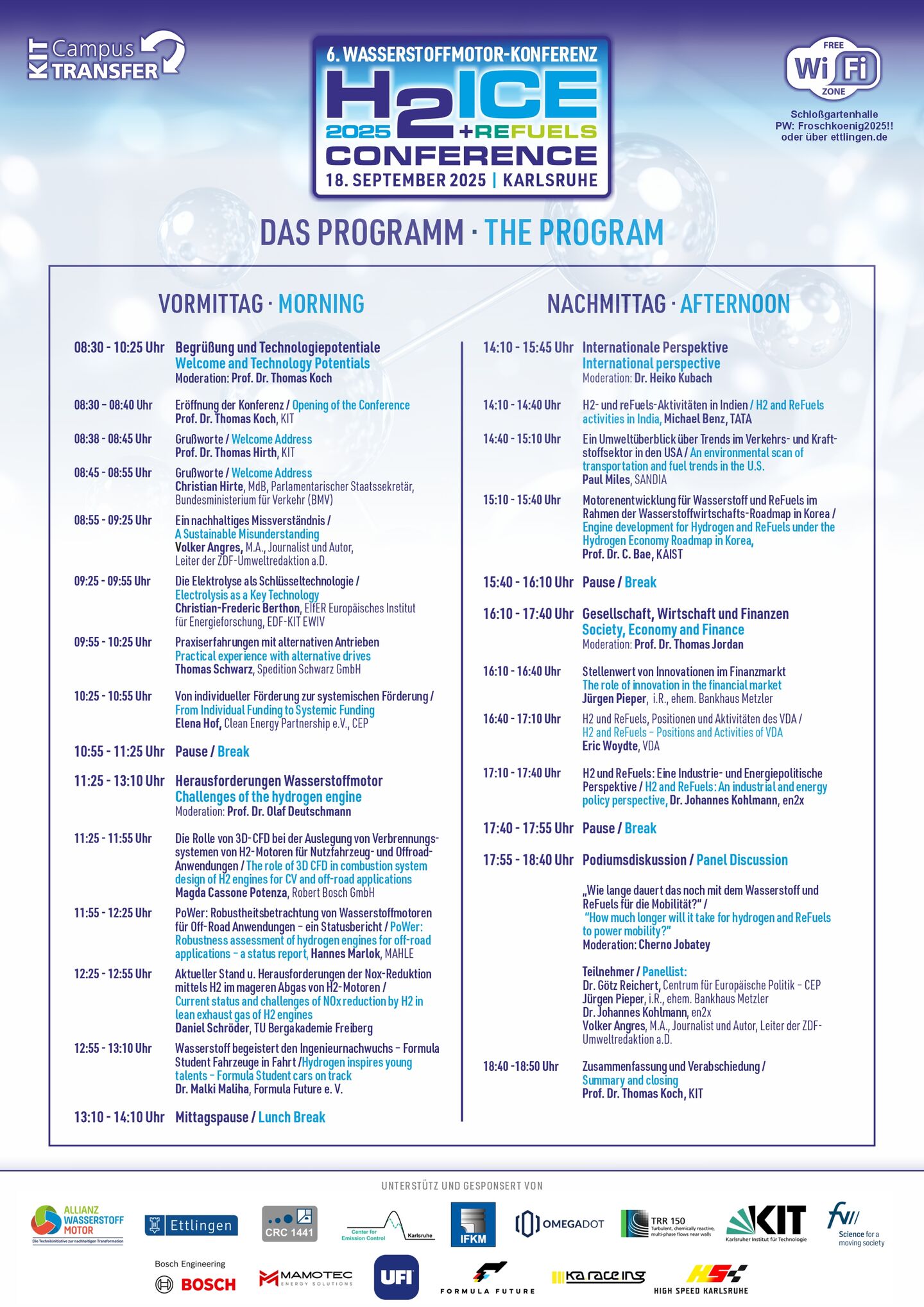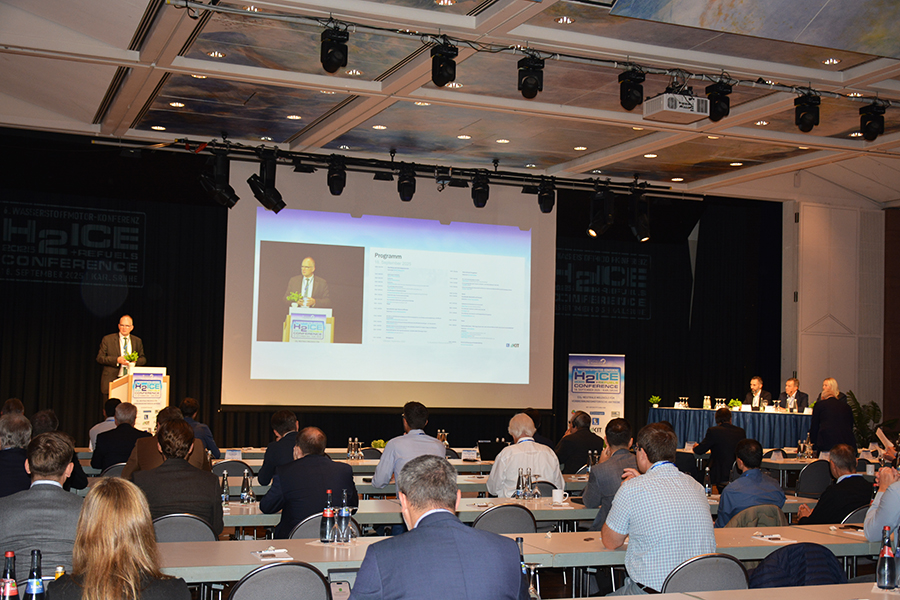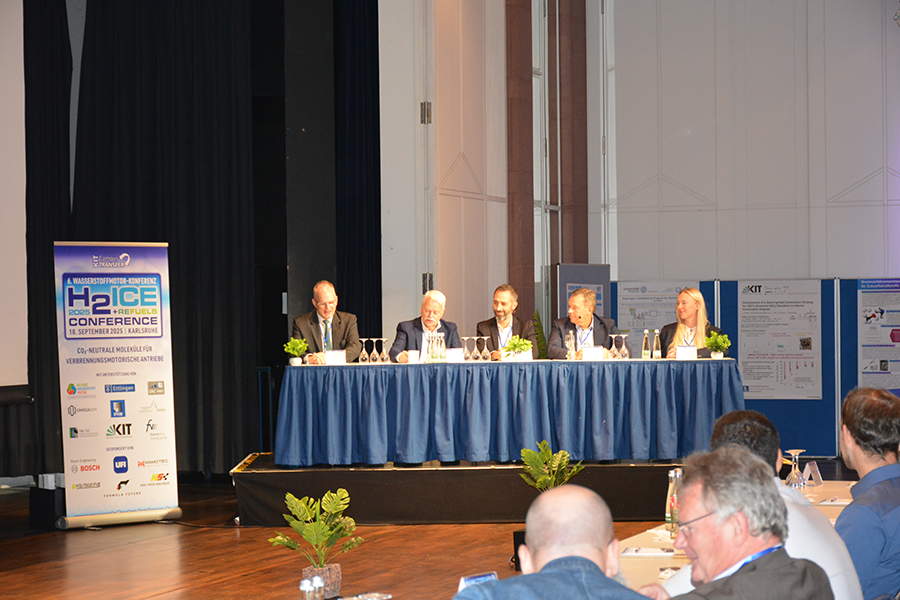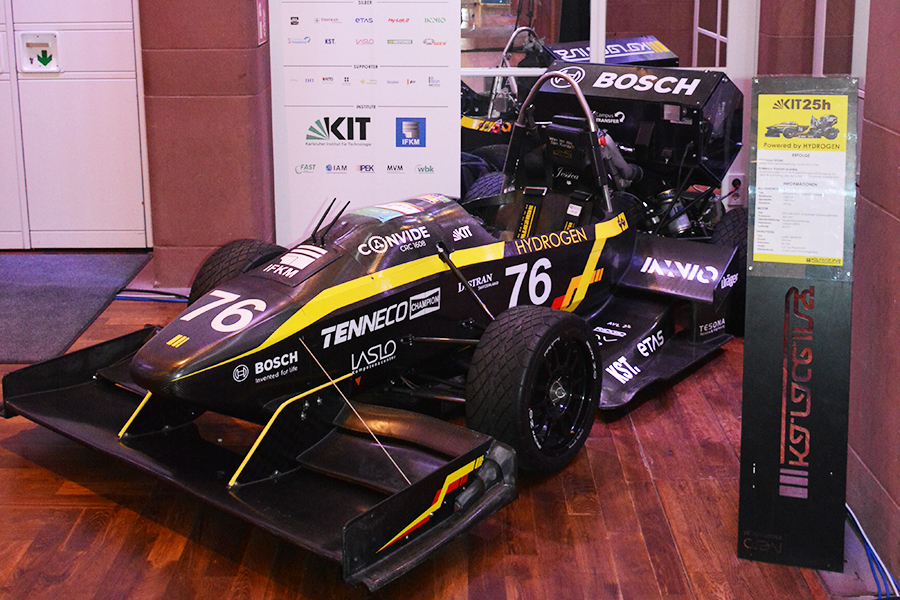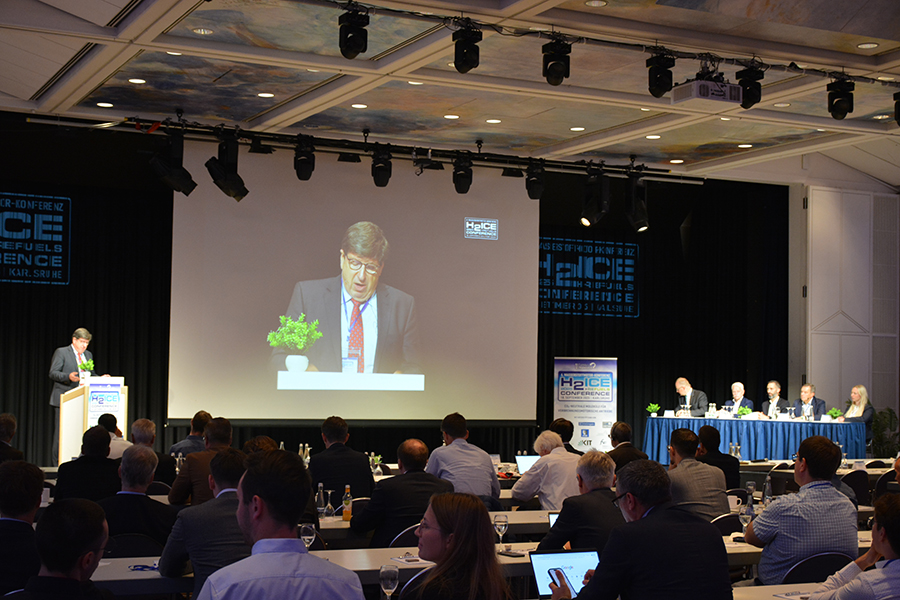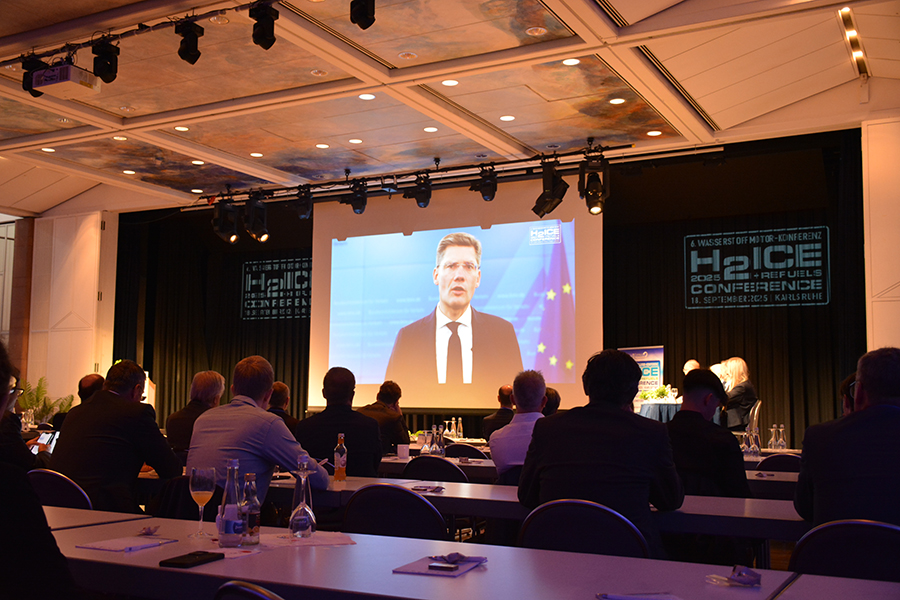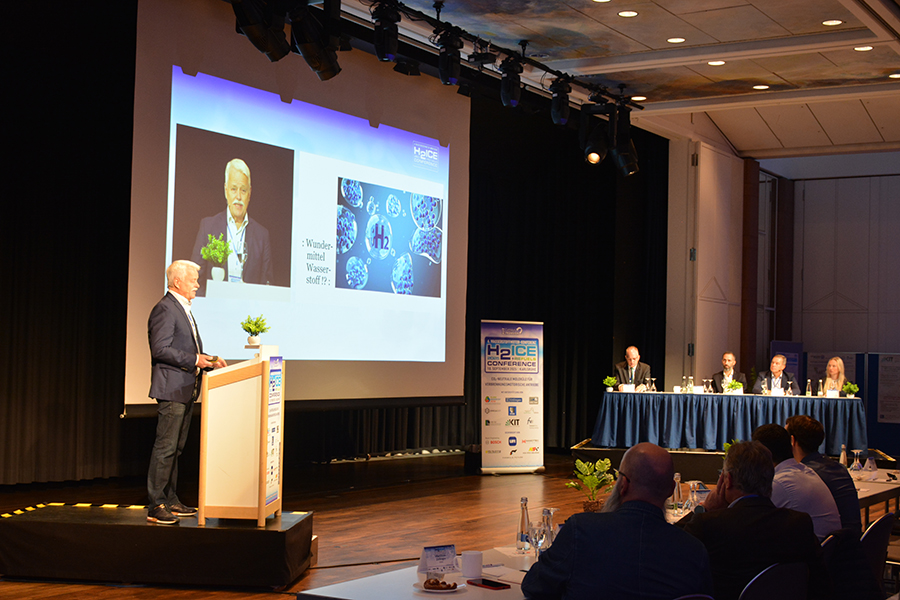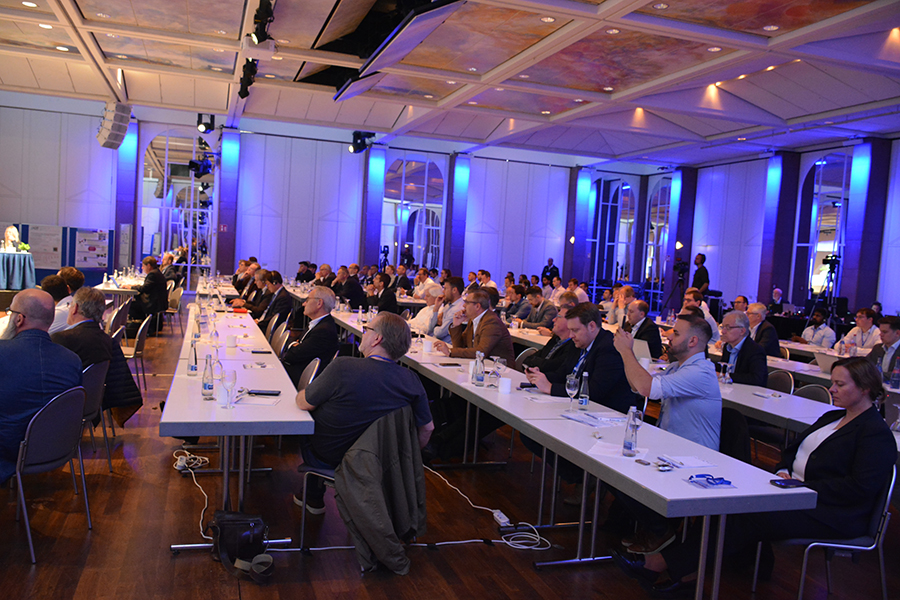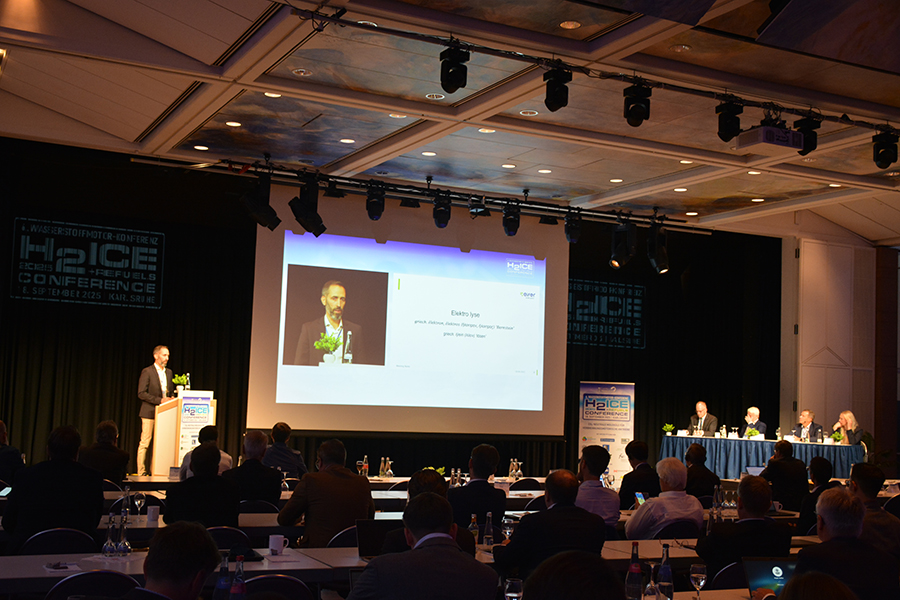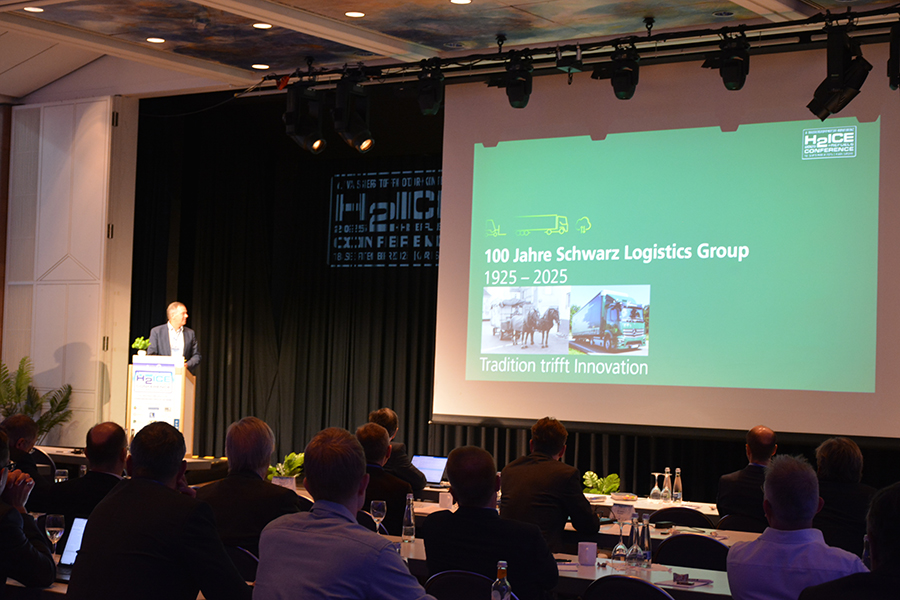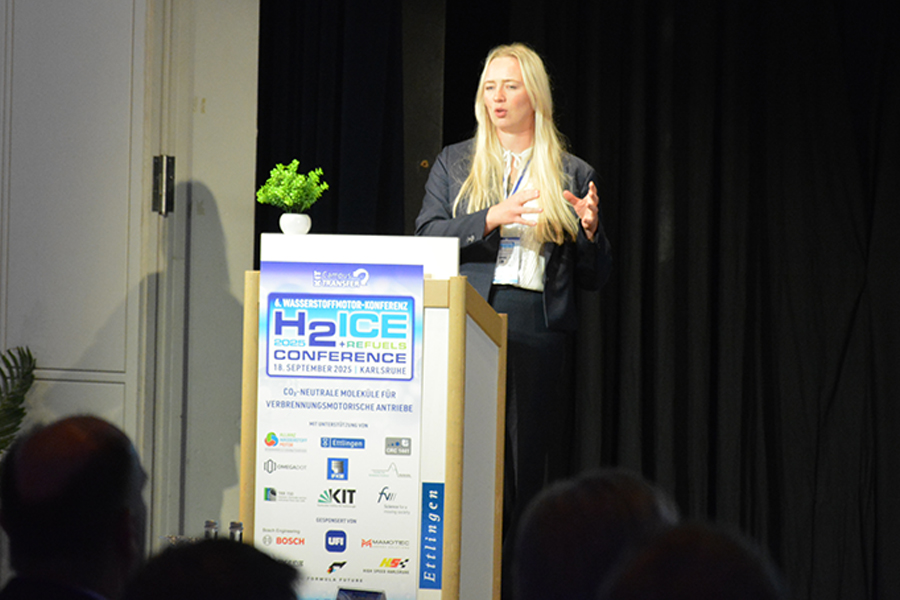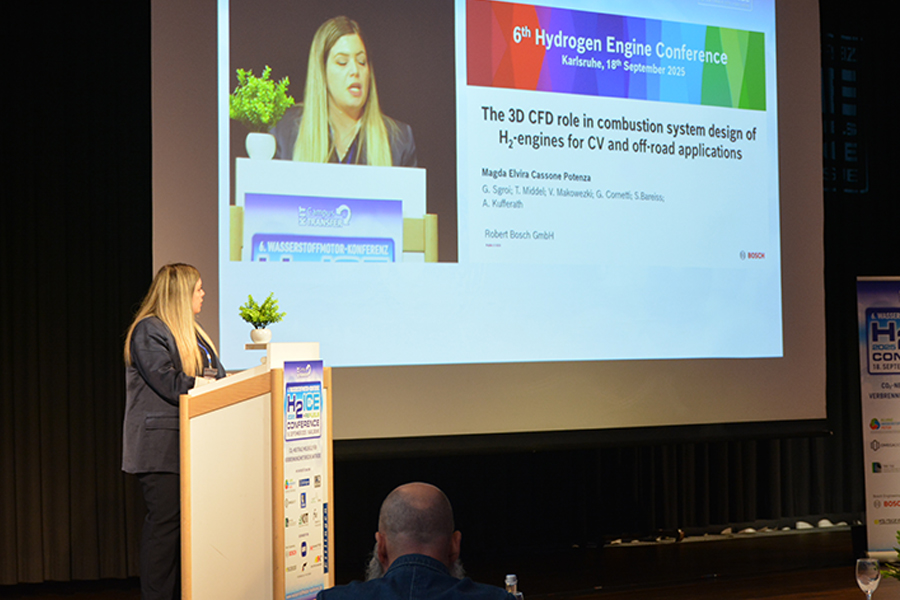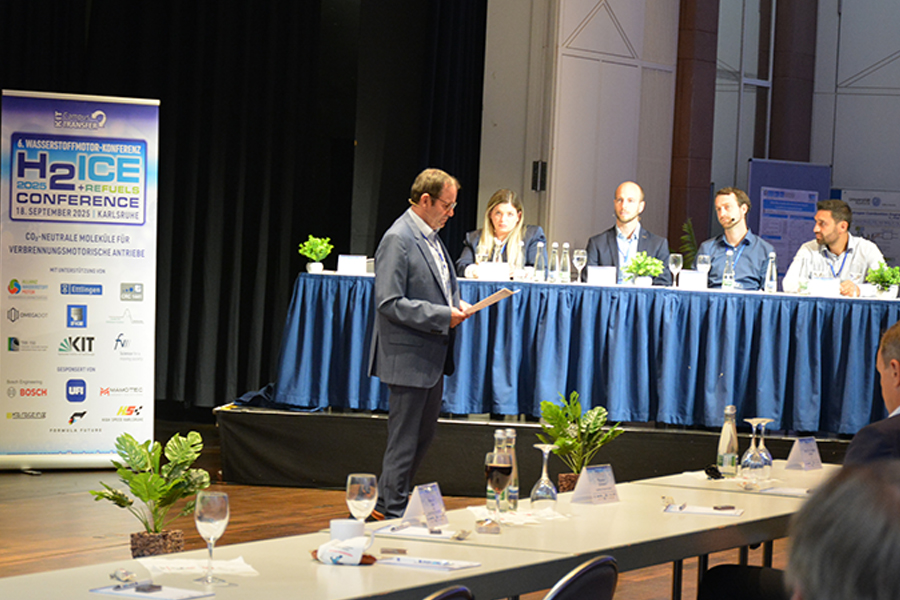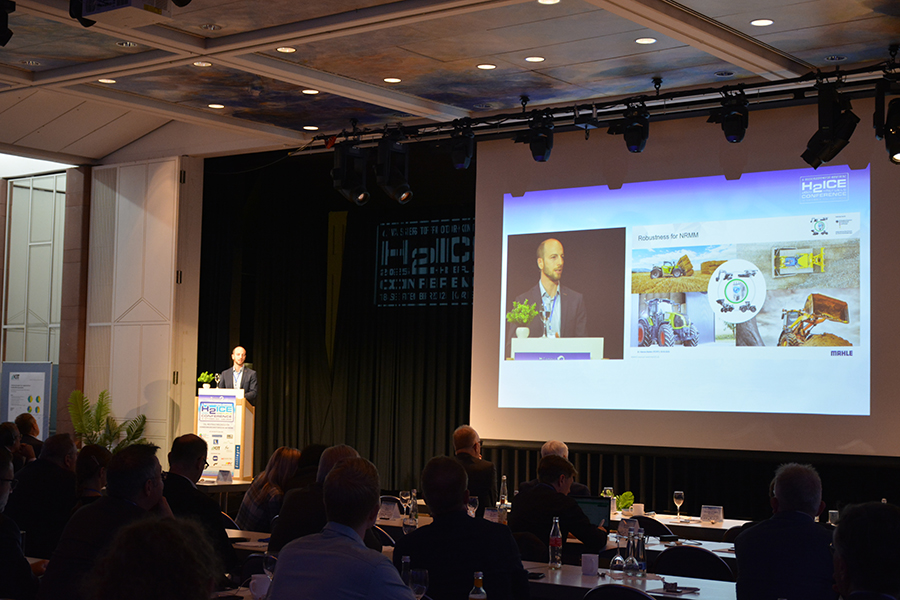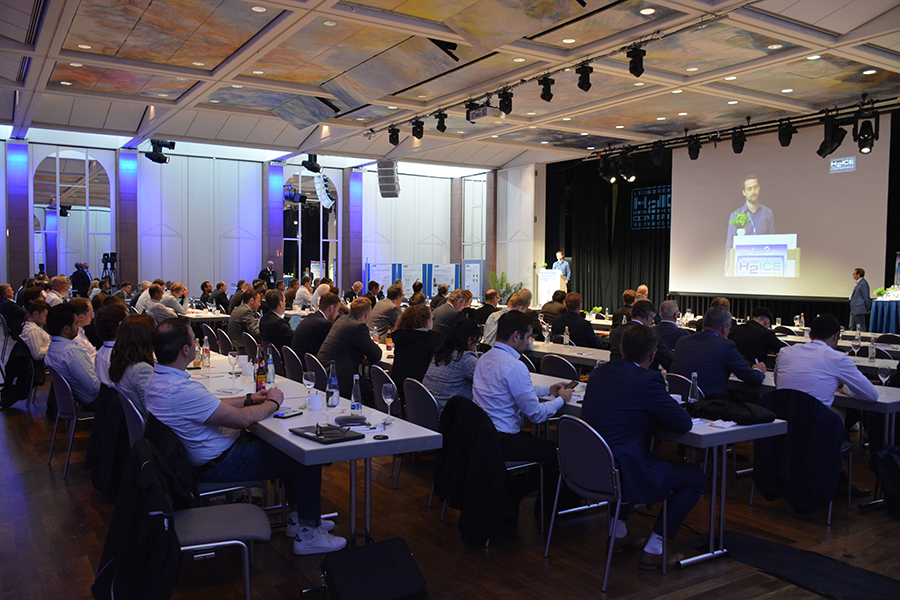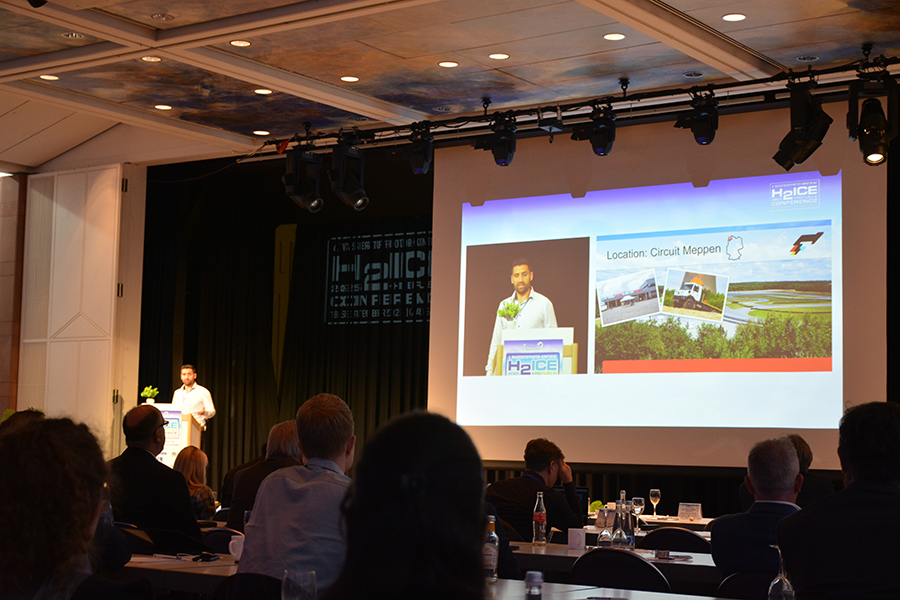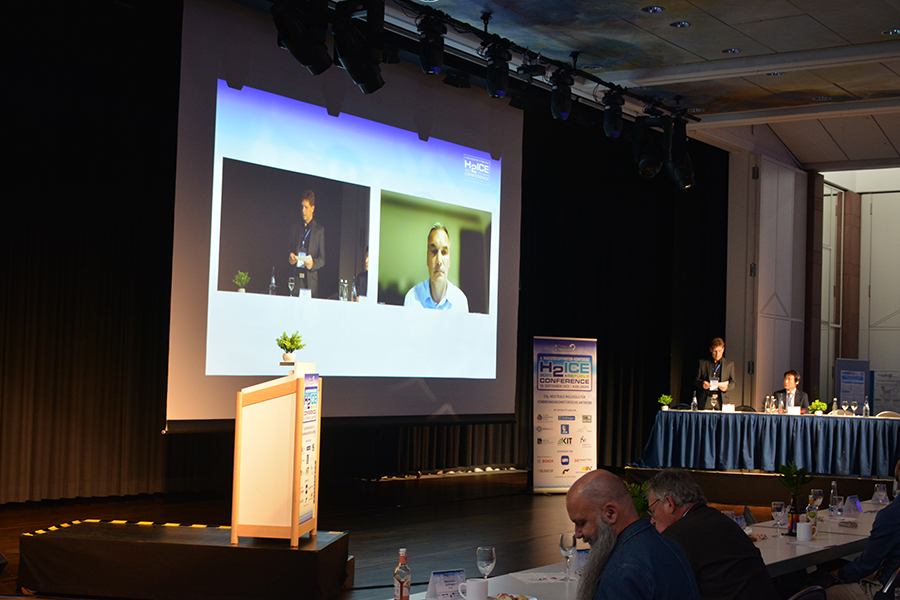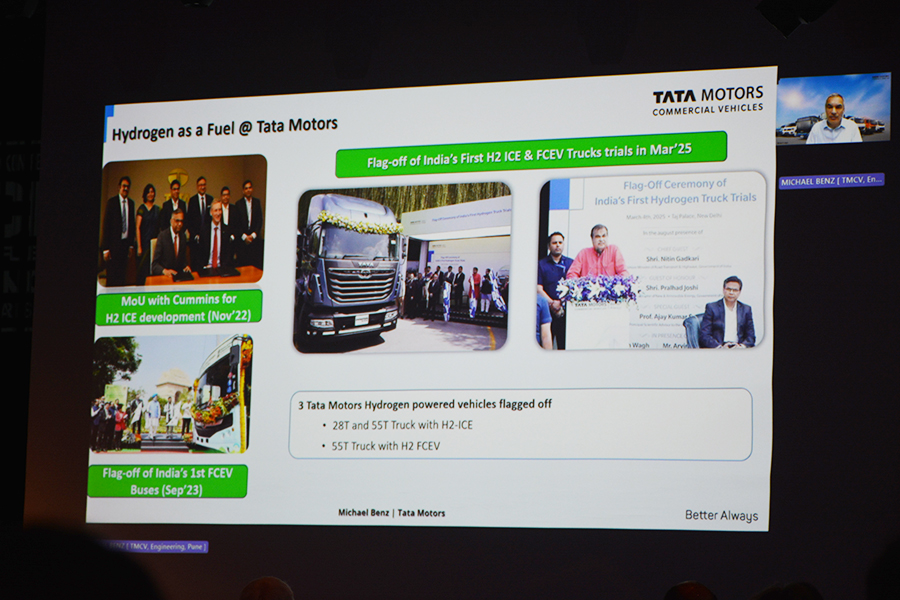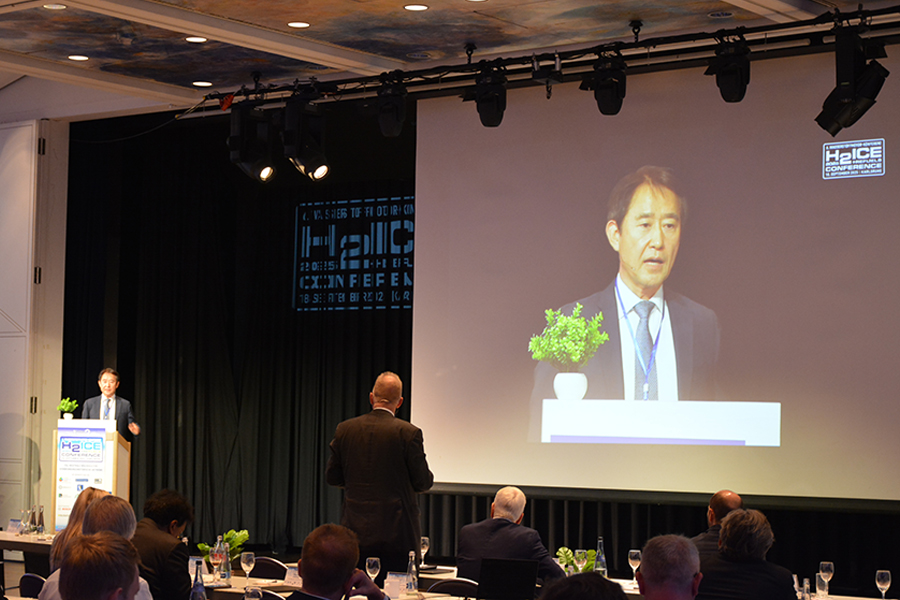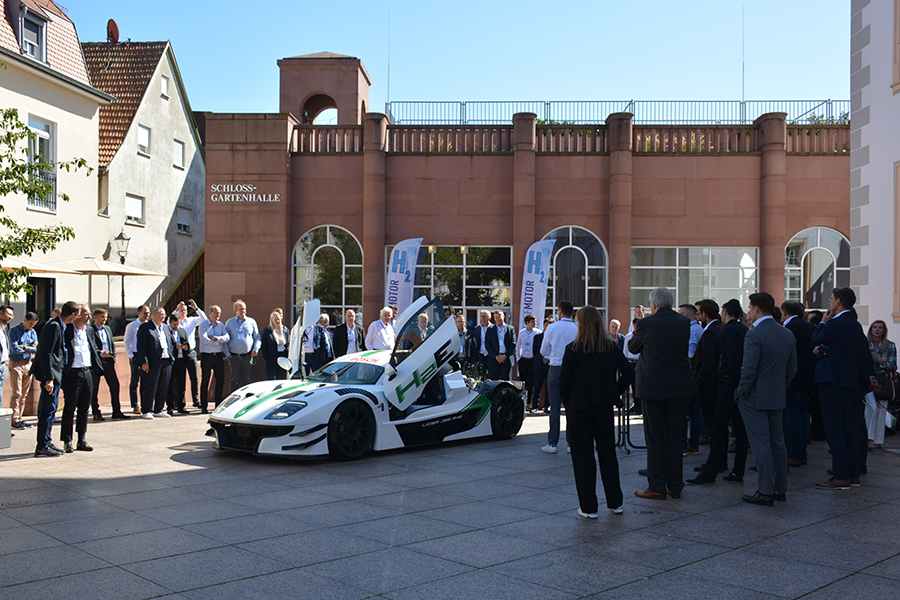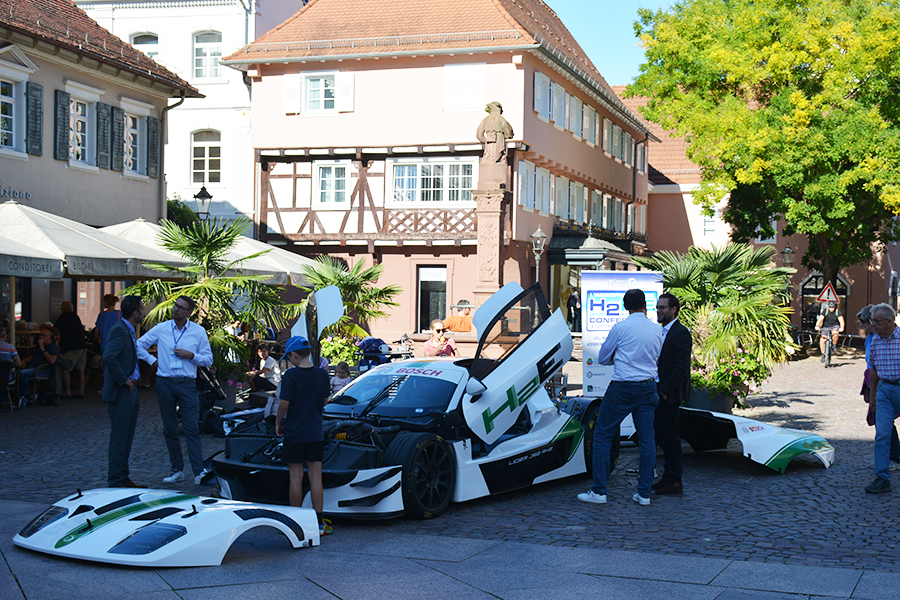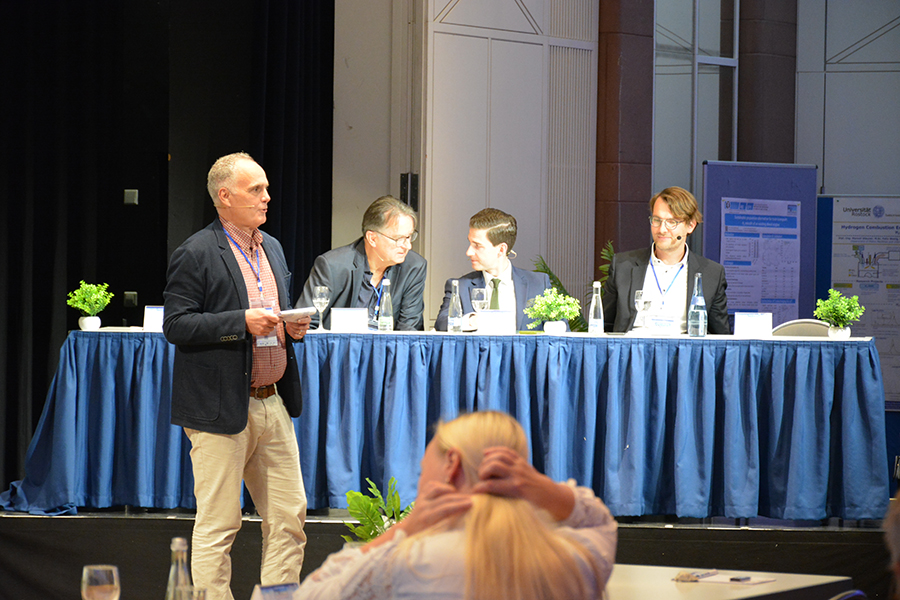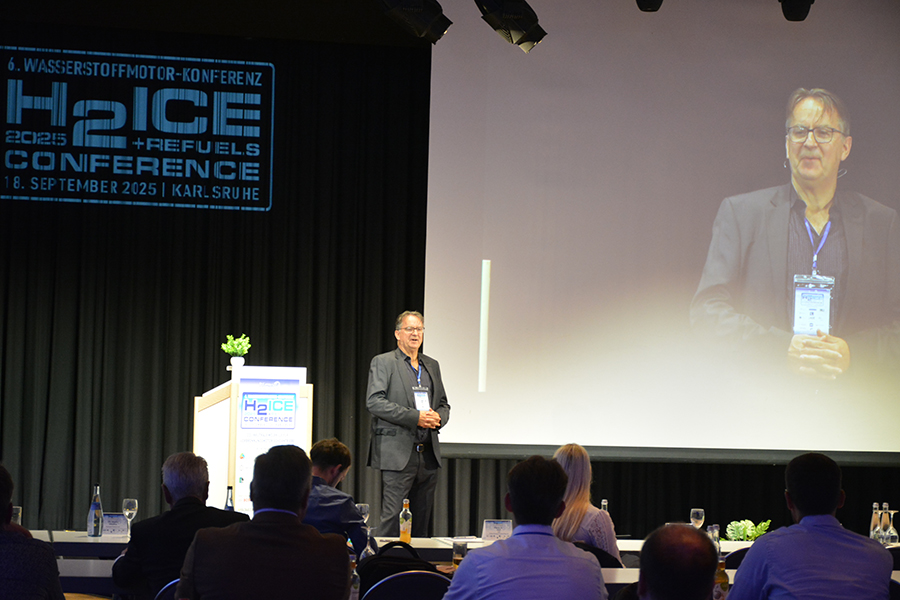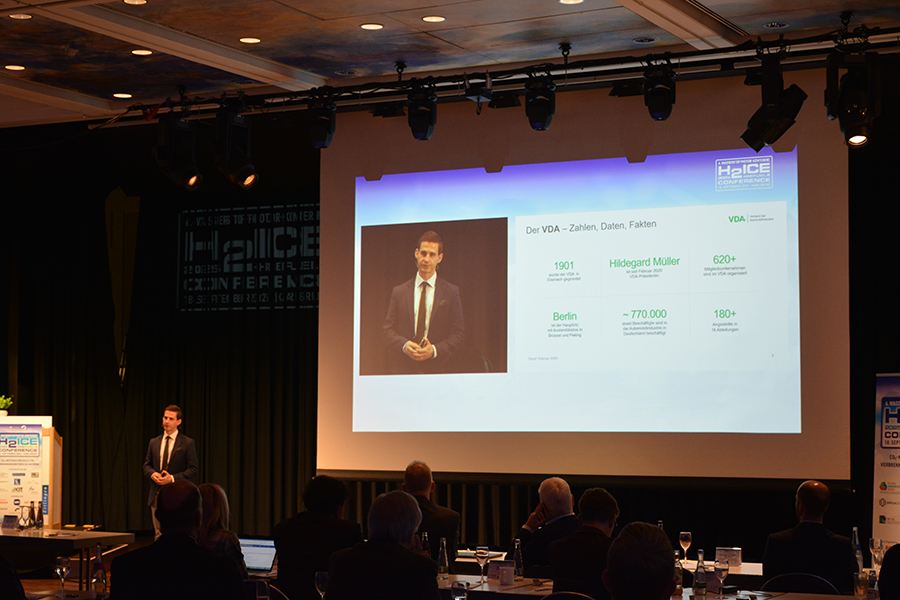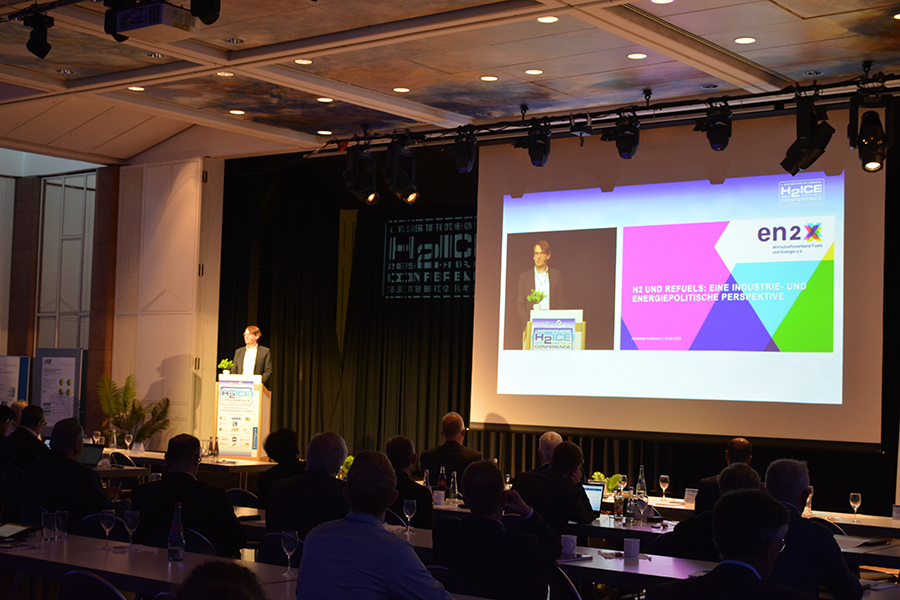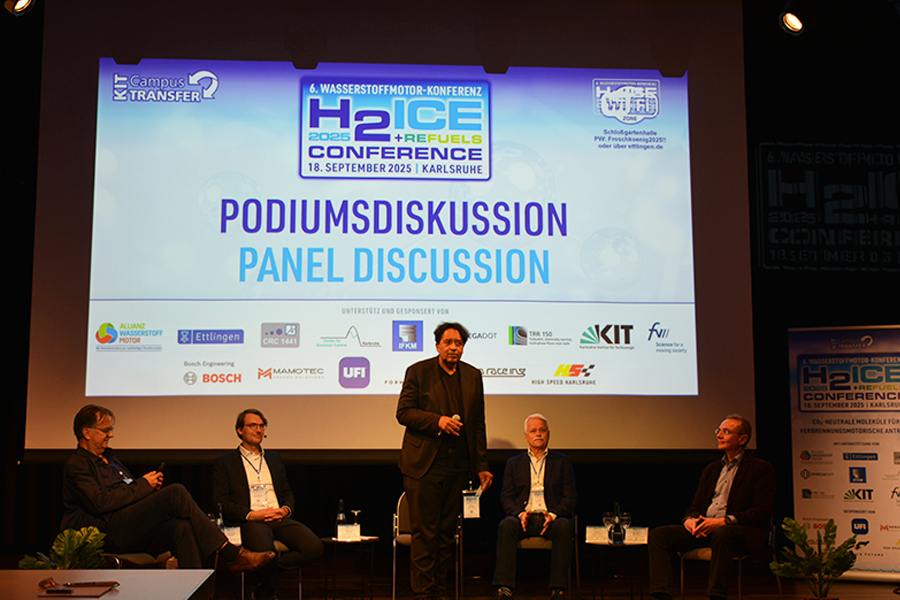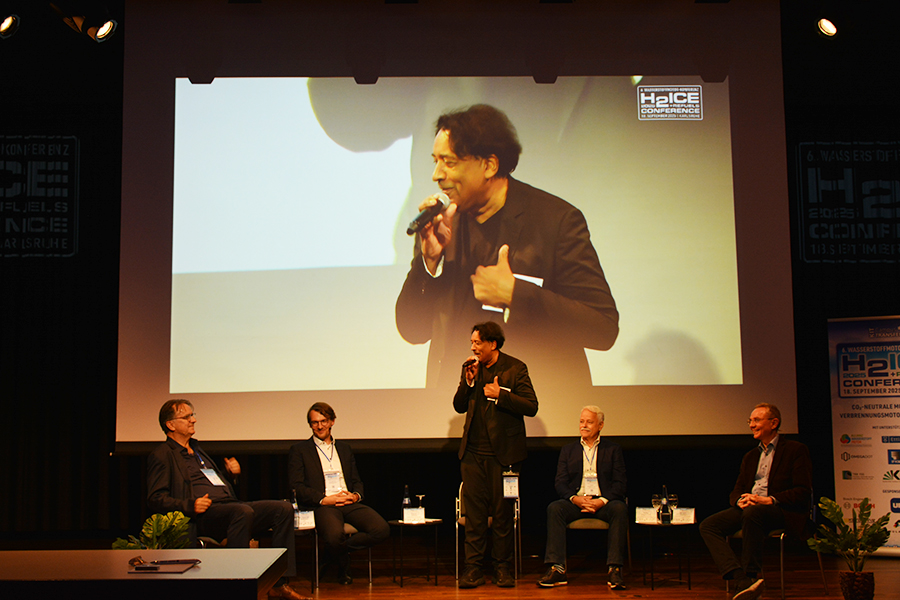The 6th Hydrogen Engine Conference 2025
REVIEW 2025
The Program
The speakers and the topics
Volker Angres, M.A., journalist and author, former head of the ZDF environmental editorial department
“Climate protection ‘made in Germany’ must be fit for export.”
Christian-Frederic Berthon, EIfER Europäisches Institut für Energieforschung EDF-KIT EWIV
“As part of a comprehensive energy transition, many countries are planning to build a new hy-drogen industry. This will require the use of water electrolysis on an unprecedented scale.”
Thomas Schwarz, Spedition Schwarz GmbH
“The transport industry needs reliable, practical, sustainable, and cost-efficient drive solutions that, in combination with political framework conditions, enable a viable business case in com-mercial road freight transport!”
Elena Hof, Clean Energy Partnership e.V. (CEP)
The Clean Energy Partnership e.V. (CEP) is pursuing a two-pronged approach to promote hy-drogen mobility: it recommends combining infrastructure expansion with the promotion of H2 vehicles and supporting this with secured GHG quotas and minimum sales guarantees.
Magda Elvira Cassone Potenza, Robert Bosch GmbH
„The 3D CFD role in combustion system design of H2 engines for CV and off-road applica-tions.
Hannes Marlok, MAHLE
“The proven robustness of the H2 engine, achieved through hydrogen-specific technologies based on the diesel base unit, is the key for demanding applications such as mobile working machines.”
Daniel Schröder, TU Bergakademie Freiberg
“NOx reduction by H2 enables an efficient NOx reduction for lean H2-ICE at low exhaust temperatures with minimal N2O formation, making it a key technology for near-zero NOx emissions in combination with conventional urea SCR.”
Dr. Malki Maliha, Formula Future e.V
“The next generation of engineers has shown that they are interested in various drive concepts – especially in connection with hydrogen.”
Michael Benz, Tata Motors
Different drivetrain concepts are in the focus of Indias industry.
Prof. Dr. Thomas Koch, KIT
So “change of energy system” of Germany has failed and is a danger for the competitiveness of the economy.
Prof. Dr. C. Bae, KAIST
“This presentation outlines South Korea’s carbon neutrality strategy, highlighting hydrogen and other carbon-neutral fuels, and KAIST’s research on hydrogen and methanol engines to enable sustainable, low-carbon transportation.”
Jürgen Pieper, i.R., ehem. Bankhaus Metzler
The financial market is generally very open to innovation, but at the same time it is skeptical about the prospects for the automotive industry, considering the technological transformation to be very costly, lengthy, and unclear. As a result, there is currently great reluctance toward both e-mobility and alternative technologies.
Eric Woydte, VDA
“Unlike drive technology, the regulations on propulsion energy do not differentiate between new and existing vehicles. In the spirit of technology neutrality, renewable fuels (biofuels, e-fuels, hydrogen) are needed for the defossilization of the existing vehicle fleet, for the ramp-up of zero-emission vehicles (hydrogen vehicles), and, in the future, for "carbon-neutral fuels ve-hicles.”
Dr. Johannes Kohlmann, en2x
“How the ramp-up of green hydrogen and re-fuels can be made possible and what role the mineral oil industry can play in the energy transition and achieving climate targets.”

